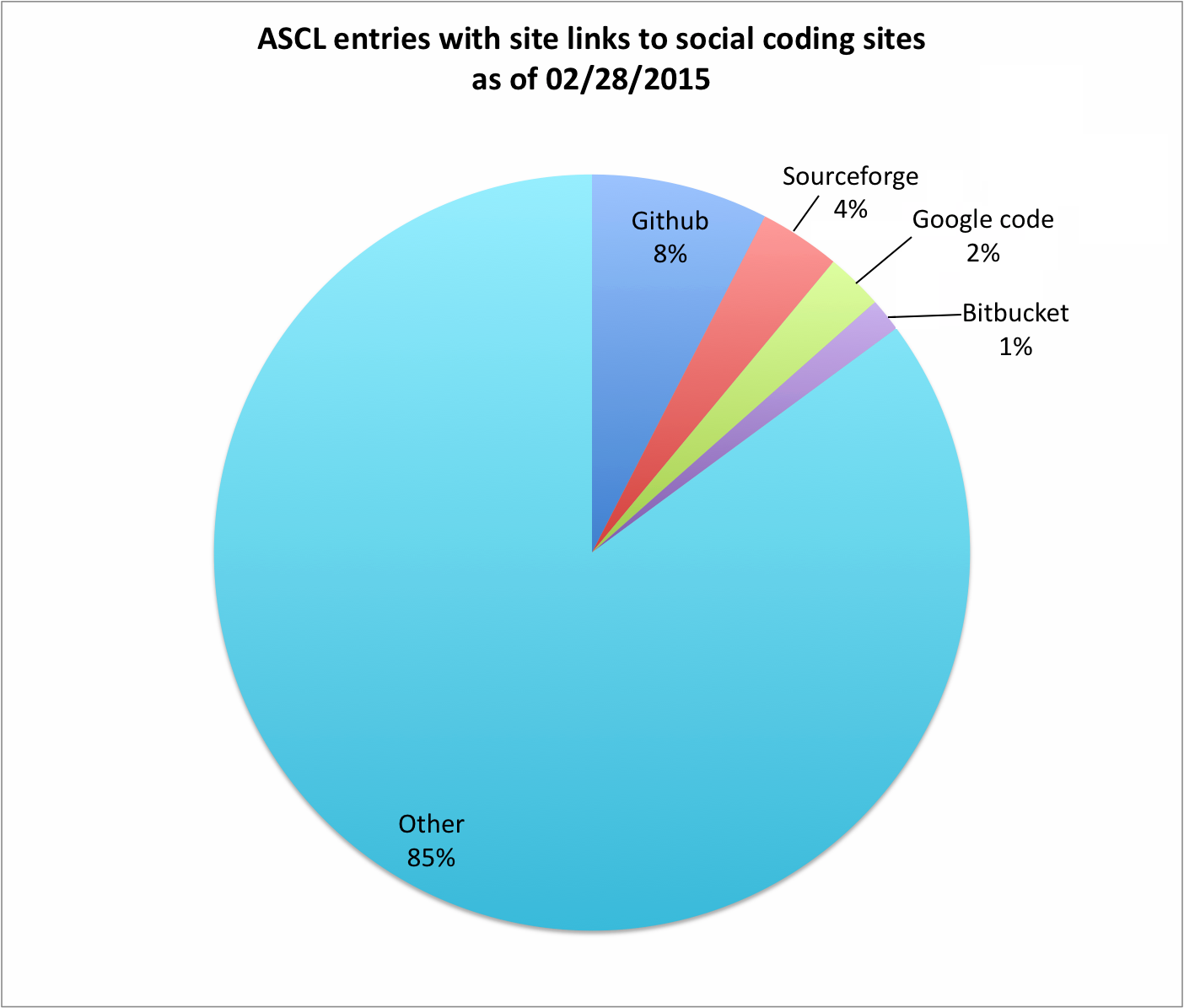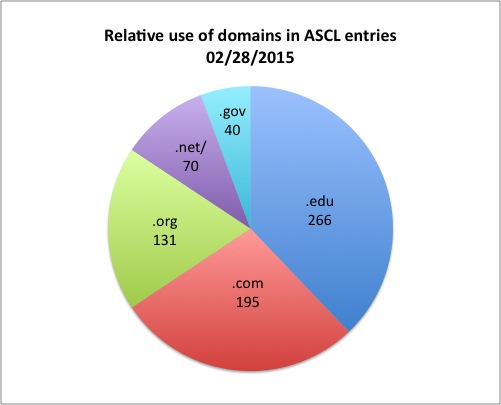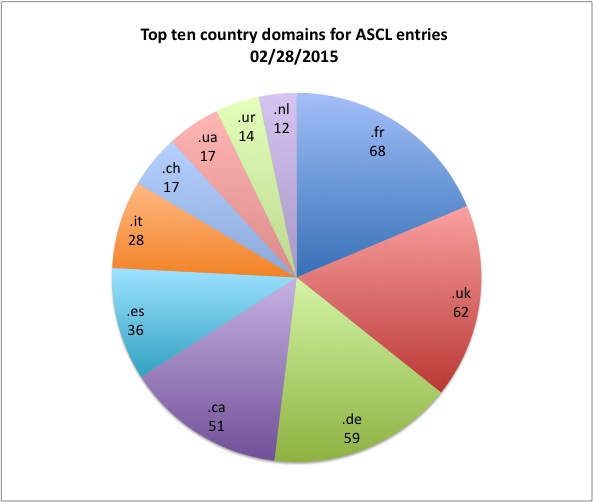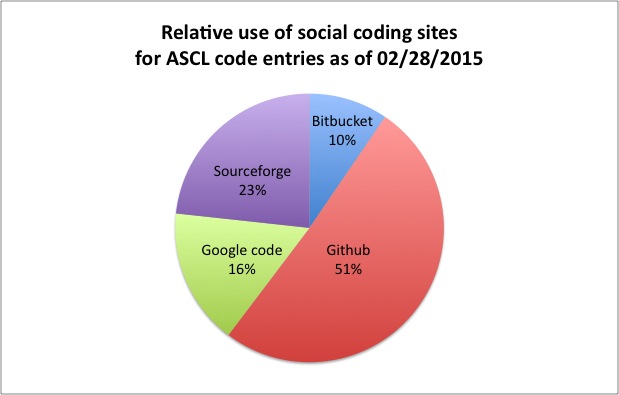… maybe not like topsy, but steadily nonetheless. In looking at the ASCL’s growth over the past year, I see that on June 15 of last year, ADS held 818 ASCL entries with 168 cumulative citations. 78 different codes had been cited by their ASCL ID, or 9.5% of codes in the ASCL.
Today, there are 1079 ASCL records in ADS with a total of 334 citations, nearly double last year, and the number of codes cited by ASCL ID has just more than doubled; that number now stands at 158, which is 14.6% of codes in the ASCL cited using the ASCL record.
So if my figuring is correct (no guarantees…), the ASCL has grown 32% in the past year (by 261 codes, from 818 to 1079), while codes in the ASCL cited by these entries is up 100%.
We are very interested in code citation, however that happens; we want software authors to gain exposure and credit for their work! A number of excellent ways to cite codes exist, and so long as codes do get cited, we don’t care how. We track citations to ASCL entries because this is one way to determine whether the ASCL is being used; page views are another measure we employ.
And yes, it’s being used. Yay! Thank you!



